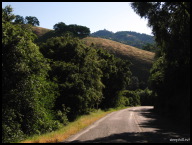Sac City schools distance learning begins with computer shortage
Sacramento City Unified School District distance learning begins with computer shortage
District said roughly 13,000 computers still needed
SACRAMENTO, Calif. —
Sacramento City Unified School District (SCUSD) is starting distance learning Monday. Thousands of families are picking up district computers this weekend to prepare for class. However, roughly a third of students will be without district-issued Chromebooks.
The district currently has roughly 12,000 computers to handout. But estimates a total of 26,000 Chromebooks are needed.
There are more than 40,000 students in the district. Approximately 27,000 students will have computers by the end of the weekend-- either their own or provided by the district, according the district. The district still needs to distribute approximately 13,000 Chromebooks.
“We distributed last week about 3,500. We will distribute about 8,500 today,” Superintendent Jorge Aguilar said. “We have additional computers coming in. Unfortunately, we aren’t the only district that placed large orders for Chromebooks.”
The district ordered around 20,000 computers and is expecting more deliveries on Monday, Friday and likely the following week.
“Sac City Unified like many school districts had not invested heavily in computers,” Aguilar said. “It is a huge gap. But one thing I want to clarify is that distance learning can be done without technology and without computers as well.”
The distance learning is moving forward despite the district and teachers’ union did not reach an agreement.
“Teachers -- and to a bigger extent students -- don’t have the technology and the resources they need to get started,” Sacramento City Teachers Association President David Fisher said.
Because of the shortage, the first round of pickups is for elementary students and will be branched out to middle school and high school students as more become available.
“Yes, we want it to start,” Fisher added. “There will just be huge percentages of students who will not have the technology to begin and that’s our big concern.”
SCUSD is rolling out “hybrid learning” which the district described as including phone communication, conference calls, textbook assignments and additional materials.
“There can be learning that takes place across the district that is not fully dependent on computers,” Aguilar said. “We are going to have some missteps. We are going to encounter bumps along the road. This is an entirely new learning space.”
The district also has a list of free or discounted internet on its website. Aguilar said he is also talking with the mayor and internet providers to increase accessibility.
Sac City schools distance learning begins with computer shortage









 As a fourth coronavirus legislative package begins to take shape, NEA is urging Congress to address immediate needs like funding as well as long-festering problems ranging from the homework gap to student loan debt. On April 9, NEA sent every member of Congress a detailed list of
As a fourth coronavirus legislative package begins to take shape, NEA is urging Congress to address immediate needs like funding as well as long-festering problems ranging from the homework gap to student loan debt. On April 9, NEA sent every member of Congress a detailed list of  Sens. Elizabeth Warren (D-MA), Kamala Harris (D-CA), and Cory Booker (D-NJ) and Reps. Ayanna Pressley (D-MA) and Robin Kelly (D-IL)
Sens. Elizabeth Warren (D-MA), Kamala Harris (D-CA), and Cory Booker (D-NJ) and Reps. Ayanna Pressley (D-MA) and Robin Kelly (D-IL)









